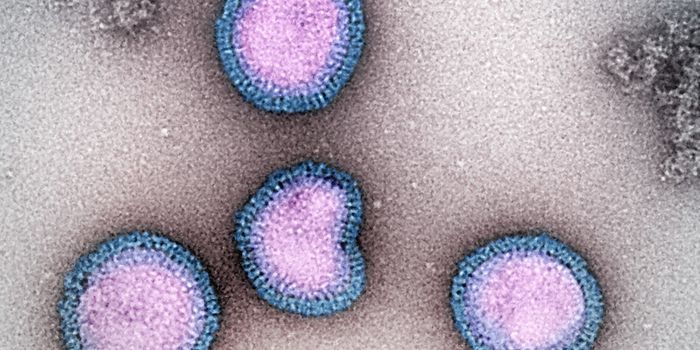A Genetic Analysis Reveals Beethoven's Secrets
One of the most famous composers who ever lived, Ludwig van Beethoven, developed hearing loss; he apparently started to notice the problem when he was around the age of 28 years old (in 1798), and by the age of 45 he was completely deaf. He died at the age of 56. Scientists have now used a bit of Beethoven's hair and advanced genetic technologies to reveal more about his maladies. The findings have been reported in Current Biology.
"Our primary goal was to shed light on Beethoven's health problems, which famously include progressive hearing loss, beginning in his mid- to late-20s and eventually leading to him being functionally deaf by 1818," said study co-author Johannes Krause of the Max Planck Institute for Evolutionary Anthropology in Leipzig, Germany.
In this work, the researchers decided to pursue an analysis of Beethoven's DNA with cutting-edge genetic techniques that can be used on historical samples. Beethoven also wanted to the world to know about his illness. In a letter to his brothers, he describes his immense frustration, anger, and loneliness because of his afflictions; his annoyance with doctors who could not help him; his wish for the world to understand what had happened to him; and his readiness to die because he suffered so much.
In this latest effort, the genetic analysis has not identified a specific cause for Beethoven's health problems. But it has revealed more, and has shown what probably killed the composer.
First, the scientists had to confirm that they were working with the right samples. Hair samples that were attributed to Beethoven and which came from several sources were analyzed; five of them were shown to originate from the same European male, and were "almost certainly authentic." These samples were then used to sequence Beethoven's genome.
Beethoven had a variety of health problems, including chronic diarrhea and abdominal pain, joint issues, depression, and cirrhosis. There was no genetic explanation for Beethoven's problems, even though medical biographers have suggested that Beethoven could have had heritable disorders. Instead, this work showed that he had a genetic predisposition to liver disease.
Additional research suggested that in the months before his death, Beethoven acquired a hepatitis B infection. The study authors noted that a combination of factors that were affecting the liver, including the hepatitis B infection, his genetic predisposition to liver disease, and excessive alcohol consumption, all probably contributed to Beethoven's death from severe liver disease.
The researchers also discovered a familial surprise during their analysis. Beethoven carried a Y chromosome that does not match any of the Y chromosomes carried by five modern relatives who have the same last name and were thought to share a common ancestor with Beethoven based on genealogical records.
This suggests that there was some "extrapair paternity event in the paternal line between the conception of Hendrik van Beethoven" in about 1572 and Ludwig van Beethoven's conception in 1770, seven generations later, said study co-author Tristan Begg of the University of Cambridge.
While previous work has suggested that Beethoven had lead poisoning, the samples that were used in that analysis did not belong to Beethoven and actually came from a female. Samples should be authenticated first in any future work like this study, the researchers cautioned.
Sources: Cell Press, Current Biology









